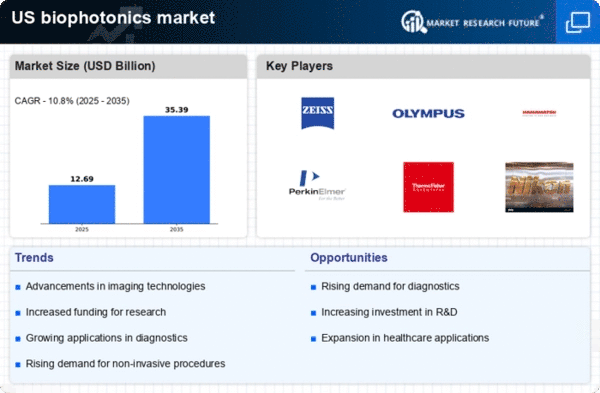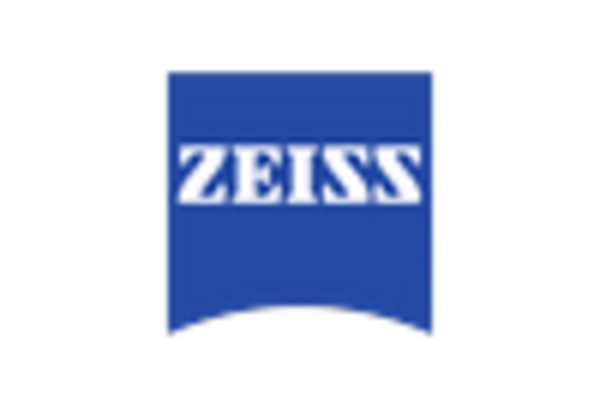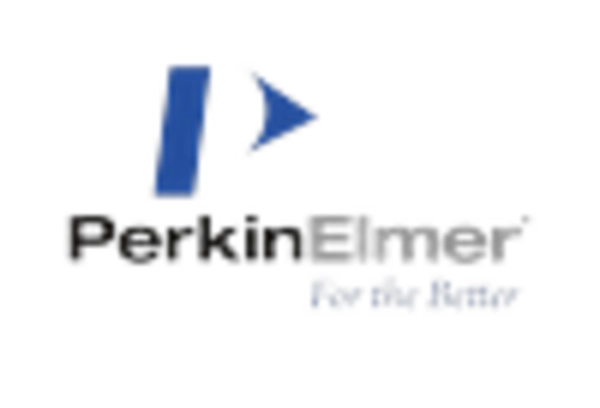Government Funding and Support
Government initiatives and funding programs are increasingly supporting the biophotonics market, fostering innovation and research. In the US, federal agencies such as the National Institutes of Health (NIH) and the National Science Foundation (NSF) have allocated substantial resources to biophotonics research. This financial backing is crucial for developing new technologies and applications in healthcare, agriculture, and environmental monitoring. For instance, the NIH has invested millions in projects aimed at advancing biophotonics techniques for cancer detection and treatment. Such government support not only enhances research capabilities but also encourages collaboration between academic institutions and industry players. As a result, the influx of funding and resources is a vital driver for the growth of the biophotonics market, enabling the development of cutting-edge solutions that address pressing societal challenges.
Advancements in Laser Technologies
Recent advancements in laser technologies are propelling the biophotonics market forward. Innovations in laser design and manufacturing have led to the development of more efficient and versatile laser systems. These advancements enable a broader range of applications, from medical diagnostics to industrial processes. For instance, the introduction of compact and portable laser devices has made biophotonics technologies more accessible to various sectors. The laser market is expected to grow at a CAGR of approximately 5% through 2028, indicating a strong demand for laser-based solutions. This growth is likely to enhance the capabilities of biophotonics applications, making them more effective and user-friendly. Consequently, the continuous evolution of laser technologies serves as a significant driver for the biophotonics market, facilitating the adoption of innovative solutions across multiple industries.
Growing Applications in Healthcare
The biophotonics market is witnessing an expansion of applications within the healthcare sector, which serves as a key growth driver. Technologies such as optical coherence tomography (OCT) and fluorescence imaging are increasingly utilized for non-invasive diagnostics and therapeutic monitoring. The healthcare industry is projected to account for over 50% of the biophotonics market by 2027, reflecting the sector's reliance on advanced imaging techniques. This growth is fueled by the need for improved patient outcomes and the demand for minimally invasive procedures. Furthermore, the integration of biophotonics in surgical applications enhances precision and reduces recovery times. As healthcare providers continue to adopt these innovative technologies, the expanding applications in healthcare significantly contribute to the overall growth of the biophotonics market.
Rising Demand for Diagnostic Tools
The biophotonics market is experiencing a notable increase in demand for advanced diagnostic tools. This surge is primarily driven by the need for early disease detection and personalized medicine. As healthcare providers seek to enhance patient outcomes, the integration of biophotonics technologies into diagnostic procedures is becoming more prevalent. The market for diagnostic imaging is projected to reach approximately $40 billion by 2026, indicating a robust growth trajectory. This trend reflects a broader shift towards precision medicine, where biophotonics plays a crucial role in providing accurate and timely diagnostic information. Consequently, the rising demand for innovative diagnostic solutions is a significant driver for the biophotonics market, as it aligns with the healthcare industry's focus on improving patient care and treatment efficacy.
Increased Focus on Environmental Monitoring
The biophotonics market is increasingly influenced by the growing emphasis on environmental monitoring and sustainability. As concerns about climate change and pollution rise, there is a heightened demand for technologies that can provide real-time data on environmental conditions. Biophotonics techniques, such as remote sensing and spectroscopy, are being utilized to monitor air and water quality effectively. The environmental monitoring market is projected to reach $20 billion by 2025, highlighting the potential for biophotonics applications in this field. This trend reflects a broader societal shift towards sustainability and responsible resource management. As industries and governments prioritize environmental protection, the integration of biophotonics technologies into monitoring systems is likely to drive growth in the biophotonics market, aligning with global sustainability goals.
















